Advertisement
Get a peek inside Cambridge’s new community theater space
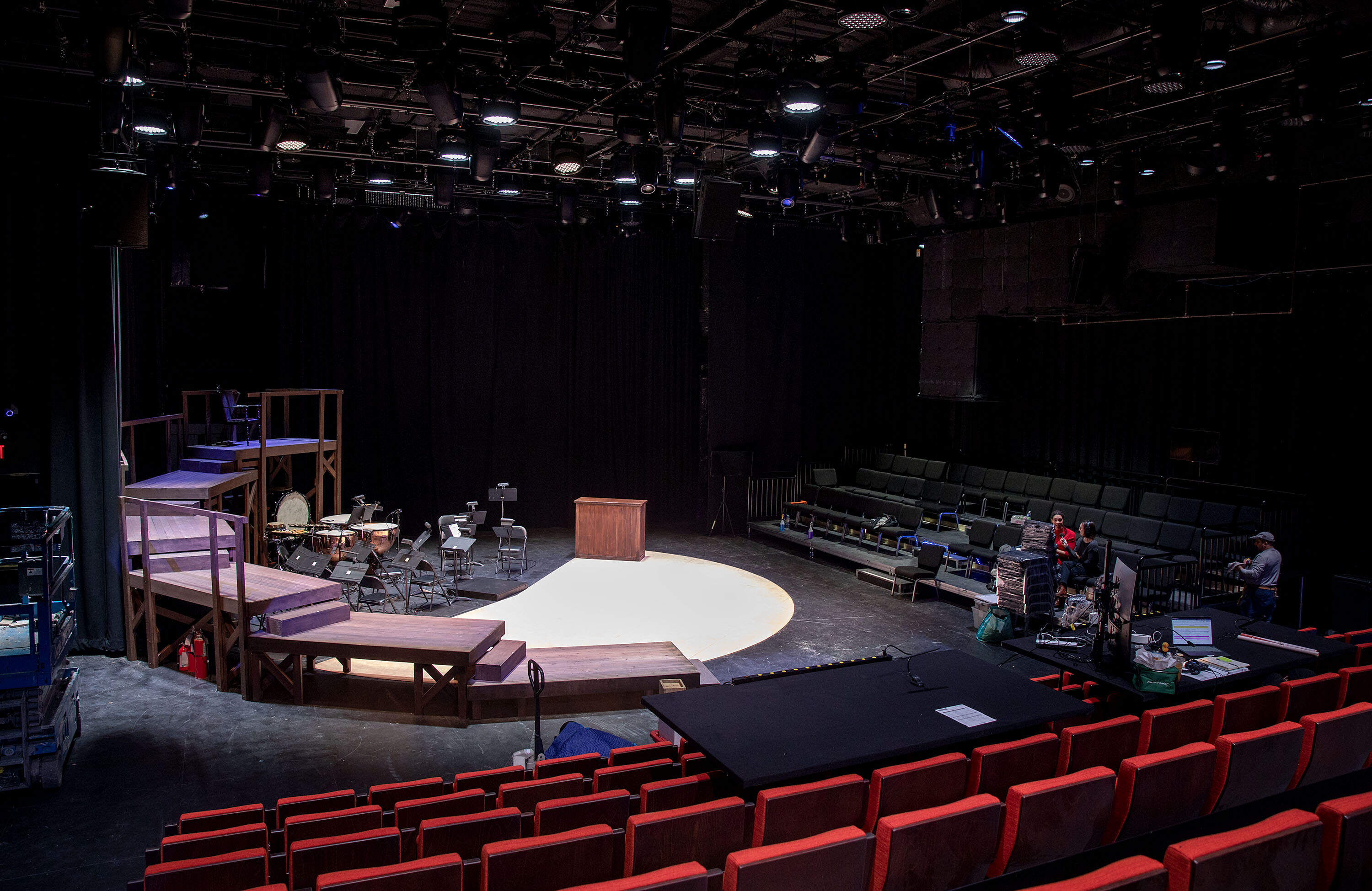
The lobby of Arrow Street Arts in Cambridge was a whirl of industry on a recent afternoon. An electrician stood on top of a scissor lift, his head hidden in the recesses of the ceiling. Trash cans and extension cords cluttered the floor. The occasional whirr of a power tool pierced the air.
Bart Reidy, a principal project lead at the theater, conjured an image of the foyer once it was finished. “Maybe a piano bar, maybe a sort of cocktail party kind of thing,” he said, his voice pitched over the din of a distant hammer.
A hush descended as Reidy entered the darkened theater, where the Boston Opera Collaborative was programming lighting cues for an upcoming performance. He explained how the system was controlled entirely by computer, which essentially meant you could use the lights without having to climb a huge ladder. “Basically everything here is turnkey. So you can come in and quickly have a production up and running,” Reidy said.
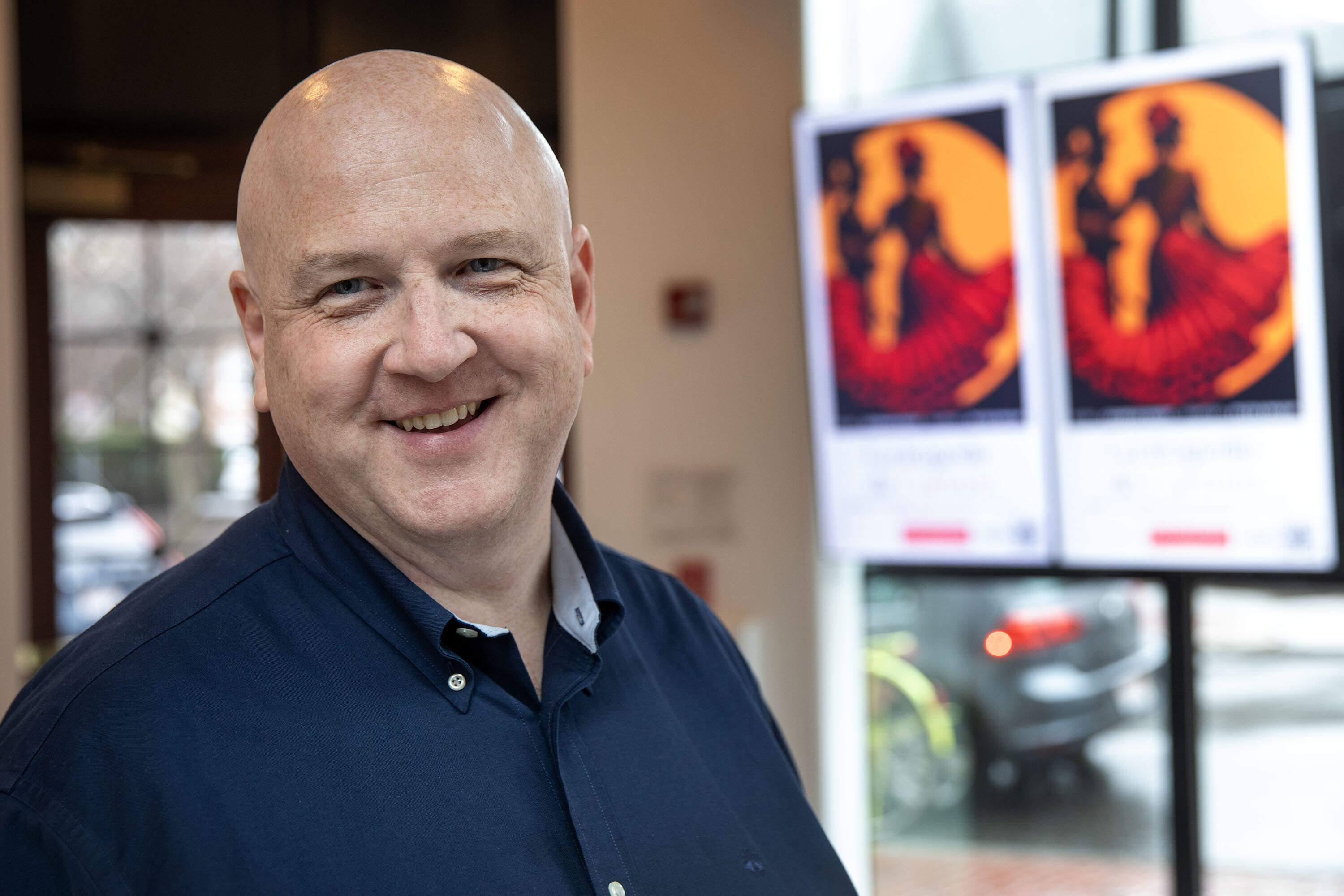
Another point of pride was the telescoping seating, a set of motorized risers with plush seats that could retract against the wall. That, plus portable risers and chairs, meant the seats could be arranged in L shape, proscenium or thrust configurations. “Everything that we've done is really about optionality and flexibility and responding to whatever the artist and whatever the audience needs,” Reidy said.
It was thanks largely to delays on the delivery and installation of the telescopic seating that the theater officially opened, with little fanfare, on April 1. A week-long opening festival, originally planned for March, has been pushed out to September. In the meantime, local groups began test driving the 4,500 square-foot black box theater and 1,100 square-foot studio, even as renovations continued.
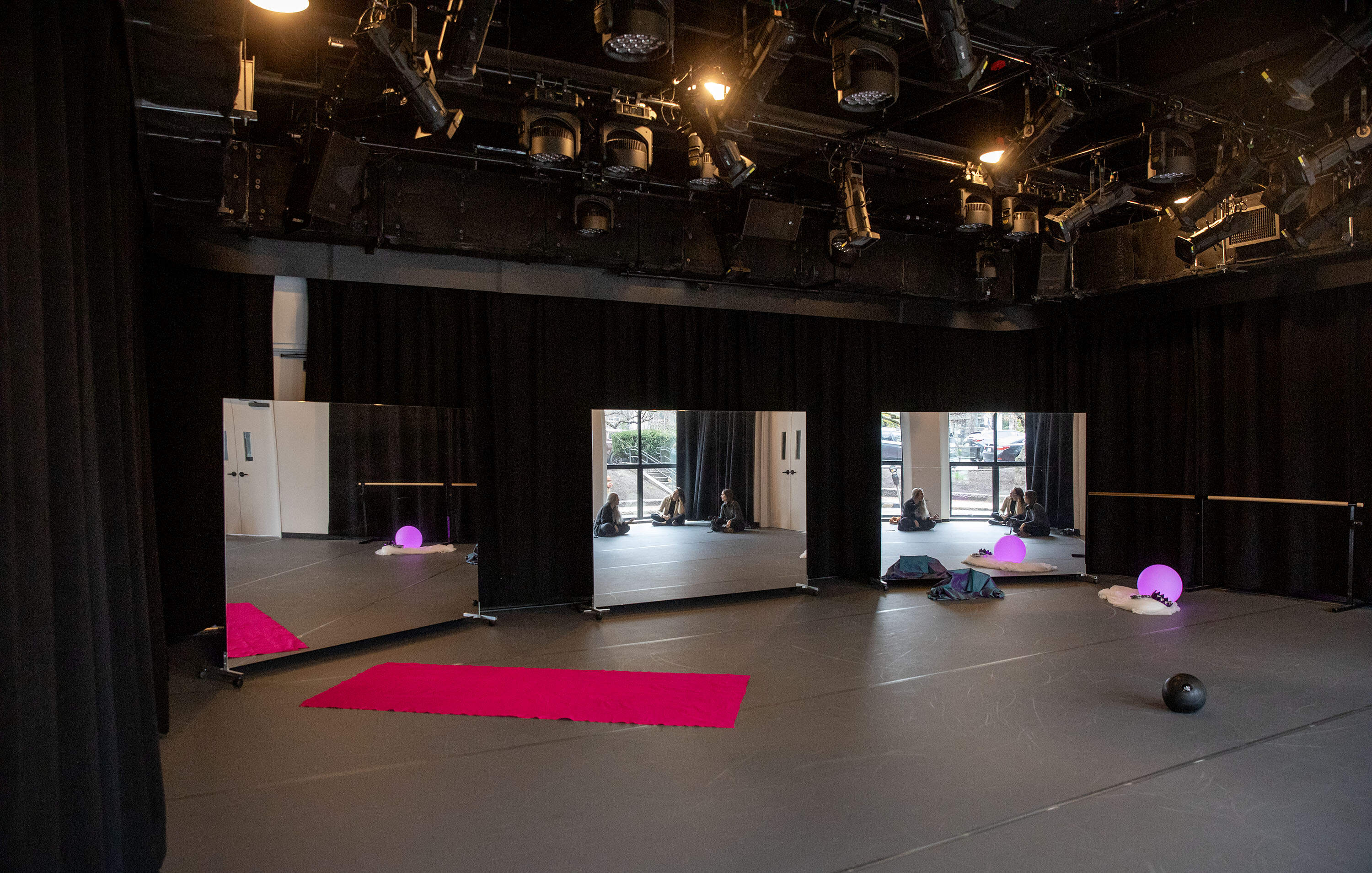
Arrow Street Arts aims to fill a need for affordable performance and rehearsal space in Cambridge. The building at 2 Arrow Street, which is owned by Harvard, was occupied for a decade by the American Repertory Theater’s club-theater hybrid Oberon. When it closed in 2021, entrepreneur David Altshuler and his wife, Sharman Altshuler, pitched a plan for a community black box with Sharman’s theater company, Moonbox Productions, in residence.
David Altshuler plans to fund the operations of the nonprofit theater through a combination of ticket sales, private event rentals, grants and philanthropic contributions from individuals, including himself.
"As is everything on Arrow Street, our financial model is a 'work-in-progress'," Altshuler said in an email. "And, while our financial model continues to look strong, we know that we have to be creative and explore new ideas and approaches in order to thrive in the post-pandemic era."
The theater partnered with the Cambridge Community Foundation on a grant program to subsidize rental costs for cash-strapped artists who wish to use the space. In its first round of grants, CCF awarded $31,000 to five local arts organizations. It recently announced its second round of grants, totaling $24,000 to support productions by ANIKAY Dance Theatre, The Dance Complex and VLA Dance.
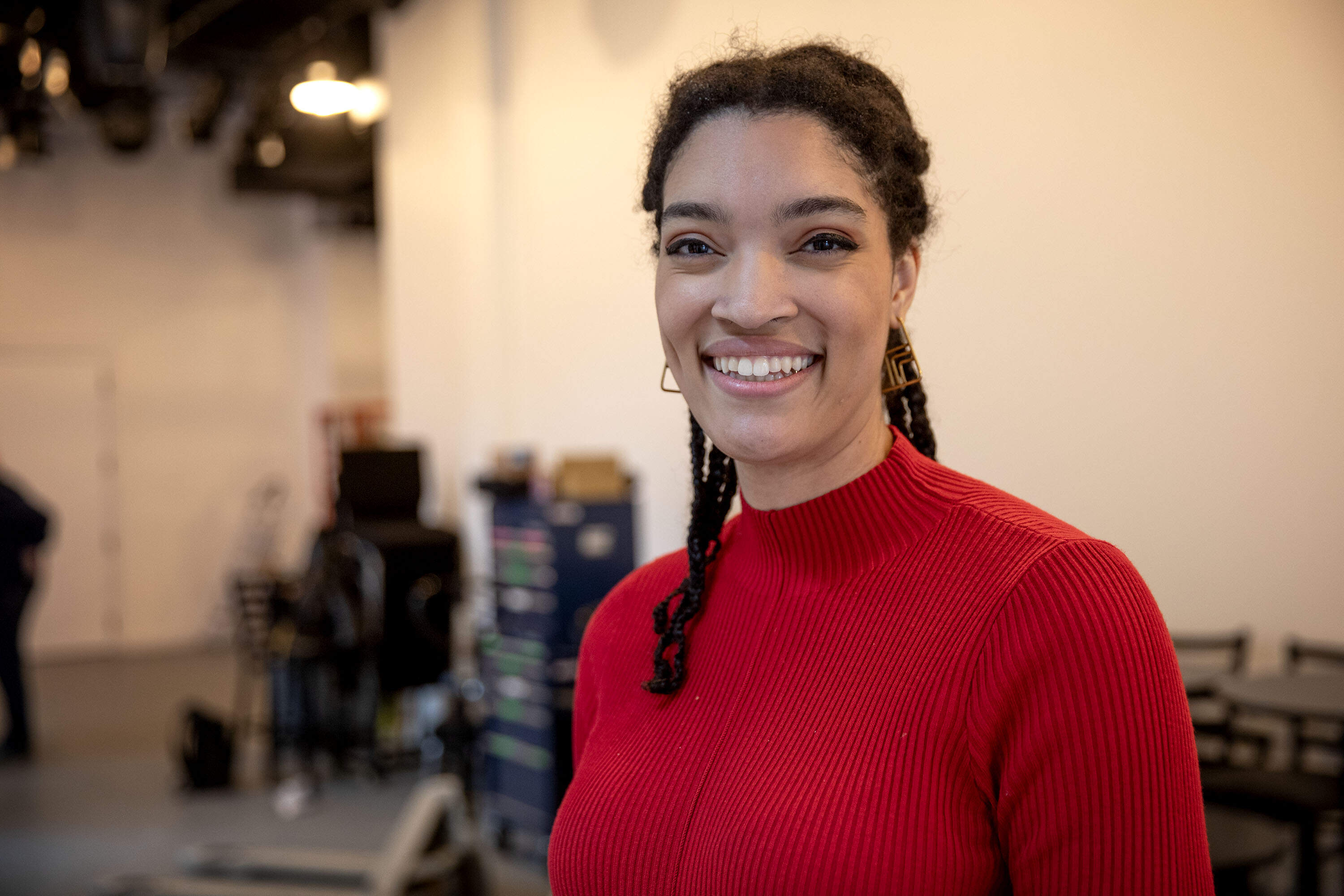
“One of the big challenges in Boston, especially if you're smaller, is that theater venues are incredibly expensive,” said Boston Opera Collaborative executive Alexis Peart. She estimated a company could easily spend $15,000 or $20,000 to use a theater for a week. For its production of “La Tragédie de Carmen,” Boston Opera Collaborative was awarded a CCF grant to use the space for free. “This has been really exciting for our team to get to come into a space that has so much incredible technology, so much on-site support,” she said.
The renovations on the Arrow Street building involved taking over an empty boutique next door and transforming it into a dance studio. Reidy led the way through the backstage area and into the adjoining studio, where choreographer Jessica Roseman was rehearsing a solo dance piece while her dramaturg, karen Krolak, looked on.
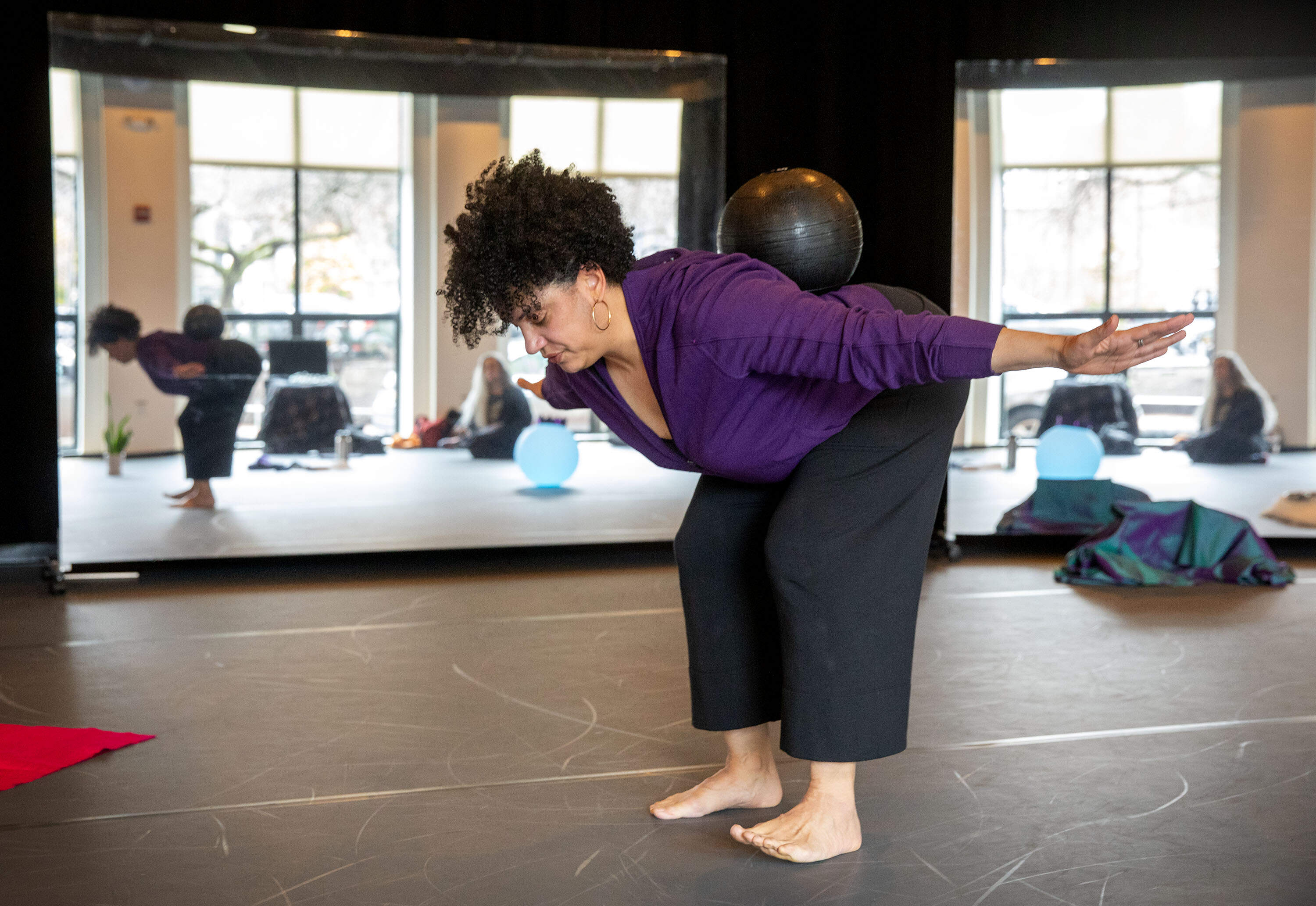
“It feels full of potential,” Roseman said of the space, which she had been using since January with support from a CCF grant. She planned to mount a performance of the finished piece in the studio, which was outfitted with lights and speakers.
Roseman saw possibility in the space, which arrives amid a crunch for affordable dance studios following the closures of Green Street Studios and Studio 550 in Central Square. “Fortunately there’s been some really great turnaround,” Roseman said, pointing to the Foundry in Kendall Square and several new spaces run by the Somerville Arts Council. “It’s still a challenge, I would say. I don’t think we’re fully there yet.”
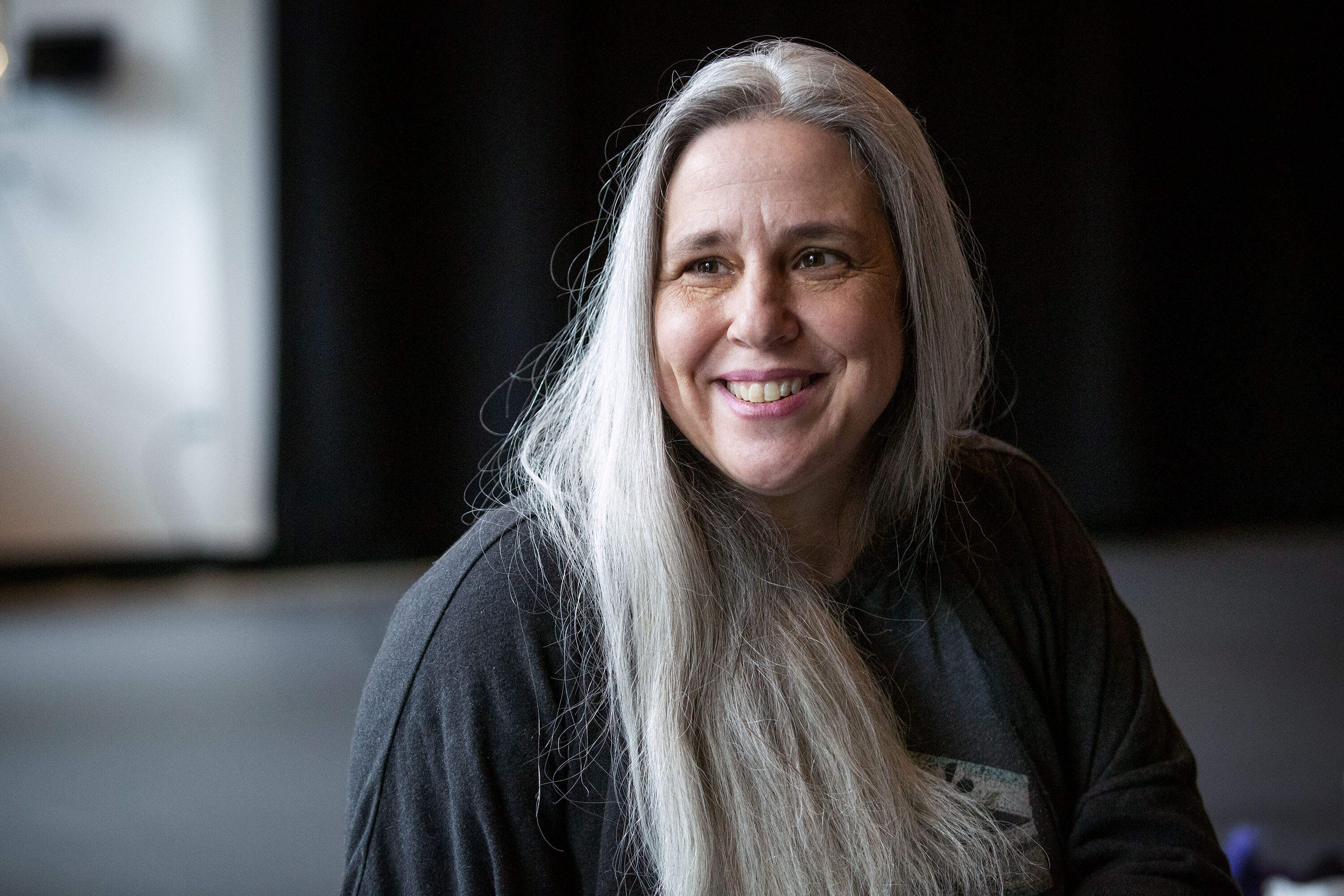
Krolak was impressed with the theater’s accessibility. “I generally have a walker with me, for my pain condition, and there are very few spaces in town where the backstage area has been thought about as being a place that could support artists that have different types of disabilities,” she said.
There was still more to come. Over the summer, Reidy said, they planned to install a high-end sound system with speakers and microphones positioned throughout the space, surround-sound style. Also, a movie screen, so the theater could be converted into a cinema.
It hadn’t been cheap. When the project was announced in early 2023, Altshuler estimated the renovations would cost around $2.5 million. “I think it’s going to be over that, now,” Reidy said, though he wasn’t yet sure by how much. As construction went on, he kept discovering new things to fix or improve.
“The project kind of grew a little bit, over time,” Reidy said. “Because if you’re going so far, you might as well do it totally right.”
